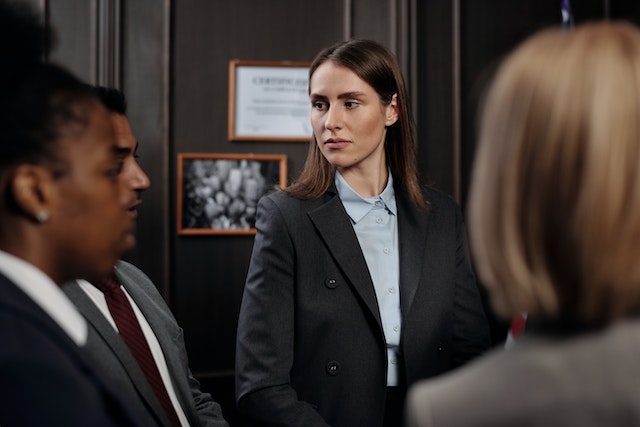“Khun Kriengsak, how can I avoid office politics?” Pranom asks me.
“What kind of politics are you talking about?” I ask.
“A new director has been attacking me both in meetings and behind my back,” she says. “I don’t like that. I don’t know how to deal with her.”
“What do you mean when you say ‘attack’?”
“Her department is a major internal customer of my department. The previous director was a nice guy. He would compromise when I was unable to deliver on some tasks according to the service level agreements (SLA). But this new director, she has never compromised. Whenever I missed any SLA, even a small one, she reported it to the management committee. I looked bad to the management committee.”
“How do you feel now?”
“I feel upset.” She starts crying. “Coach, I’m sorry.”
“Khun Pranom, you don’t need to apologise to me. It’s okay to cry. It’s a natural way to relieve tension.”
While I wait for her to regain her composure, I think of some ideas to discuss with her.
“Khun Pranom, we’ll come back to discuss this issue later.” I say when we resume.
“Right now I want you to switch gears. Instead of talking about a negative subject, I want you to tell me about your positive things. Tell me more about your recent success.”
“Okay coach. We just successfully went live with the new Enterprise Resource Planning (ERP) software for our contact centre. We are only country in Asean that made it on time. Our peers in the other Asean countries are struggling with it.”
“How did you do it?”
She explains with passion. Her eyes sparkle as she shows pride in her strengths in project management tasks.
After she finishes, I say. “Congratulation, you did well. Nevertheless, nobody is perfect. You’re good at many things but you may not be good at office politics.”
She nods. Now she has more self-esteem than at the beginning of the session and is ready to discuss more difficult issues.
“Khun Pranom, what I will tell you might be a little harsh. I just don’t want you to take it personally or feel defensive,” I say.
She acknowledges and I continue by sharing with her a passage from Secrets of a CEO Coach by D.A. Benton. It was a book that really inspired me, and it has a highly relevant passage on ABC Tips about Office Politics:
A stands for Accepting: You have to have the right attitude about office politics. “It’s a fact of life that if there are at least two people involved, there will be office politics,” the author writes.
B stands for Being good at your job. If office politics is inevitable, you will be blamed if you made a mistake. Hence, the best strategy is to do everything right. In fact you have to go beyond meeting the standard, you have to excel in your job. Thus, nobody can attack your weakness.
C stands for Confronting those who attack you. If you’re compromised, you’re also part of the problem.
“I get it, but it’s hard for me to confront,” says Pranom.
“What’s the voice in your head telling you when you’re supposed to confront someone?”
“I tell myself, ‘This isn’t polite.”‘
“Why?”
“Because when I was a child I had an argument with my brother, and my mom told me that it was impolite to have an argument with anyone.”
“What made your mother say that?”
“I don’t know.”
“If you had to guess?”
“She probably thought that it’s for my own benefit. If I grew up as an aggressive girl, perhaps I would not get a husband.”
“Do you think that’s a real or just her way of thinking?”
“It sounded sensible at that time.”
“Let me share with you a Zen story,” I say, and offer the following:
Two monks were returning to the monastery in the evening. It had rained and there were puddles of water on the roadside. At one place a beautiful young woman was standing, unable to walk across because of a puddle of water. The elder of the two monks went up to her, lifted her in his arms, brought her to the other side of the road, and continued his way to the monastery.
In the evening the younger monk came to the elder monk and said, “Sir, as monks, we cannot touch a woman.”
The elder monk answered, “Yes, brother”
“But then, how is it that you lifted that woman on the roadside?”
The elder monk smiled at him and told him, “I left her on the other side of the road, but you are still carrying her.”
“Khun Pranom, what’s the lesson learned from this story?”
“I have to let go of the past. What my mom told me is irrelevant in my workplace. I can make an argument with my colleague constructively and assertively.”




